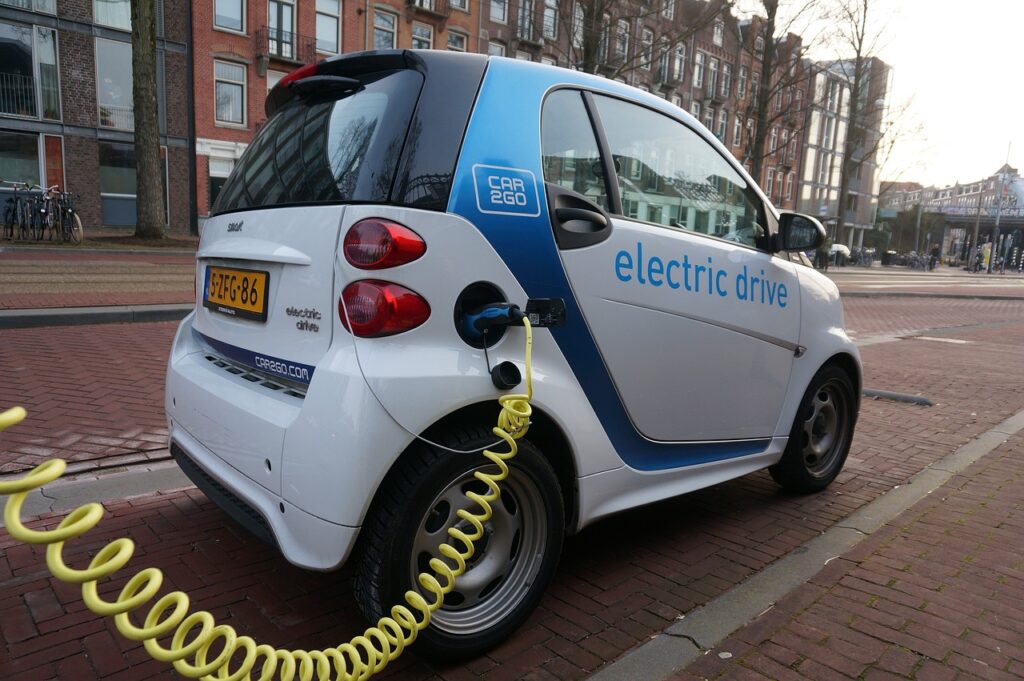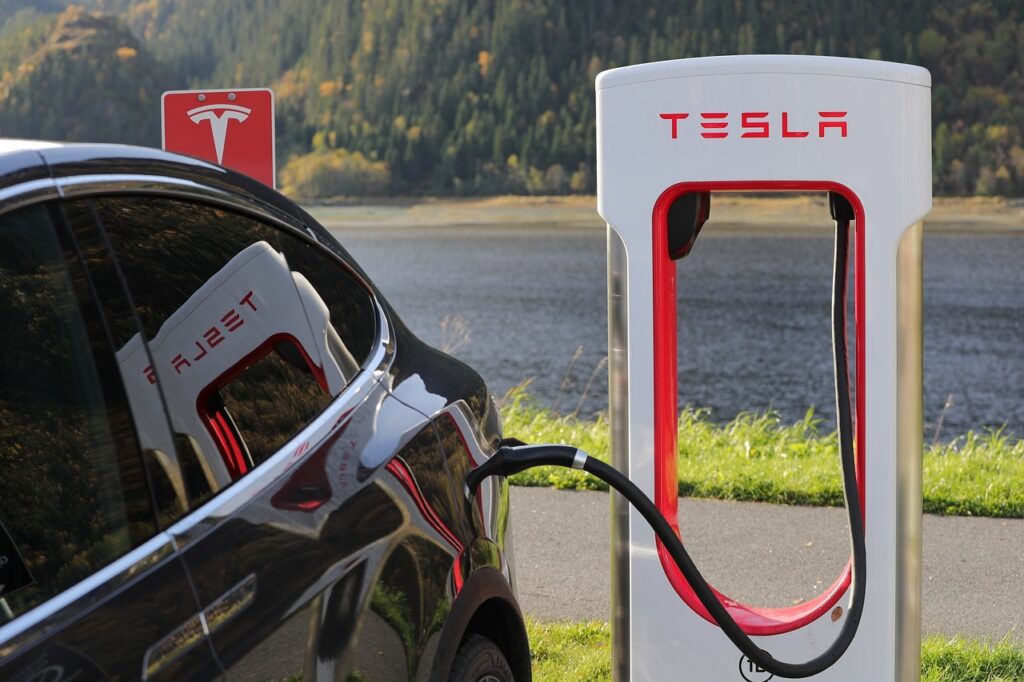“Eco-Friendly Electric Vehicles and Sustainable Mobility”

- In the rapidly evolving landscape of transportation, electric vehicles (EVs) are emerging as the frontrunners, driven by a growing demand for eco-friendly, economical, and fuel-efficient alternatives. With a surge in global awareness about environmental sustainability, coupled with advancements in technology, EVs have become more than just a niche market; they represent a transformative shift towards greener, cleaner, and more sustainable mobility solutions.
The Surge in Demand

- The increasing awareness of environmental issues, coupled with concerns about traditional fossil fuel dependency and climate change, has led to a growing demand for electric vehicles. Consumers are becoming more conscious of their carbon footprint and are actively seeking greener alternatives to traditional gasoline-powered vehicles. Governments and policymakers are also playing a pivotal role by incentivizing the adoption of EVs through subsidies, tax benefits, and infrastructure development.
Eco-Friendly Transportation
- One of the primary drivers behind the surge in demand for electric vehicles is their eco-friendly nature. Unlike traditional internal combustion engine vehicles that rely on fossil fuels, electric vehicles operate on electricity, which can be generated from renewable sources such as solar, wind, or hydropower. This shift towards cleaner energy sources significantly reduces the carbon footprint associated with transportation, contributing to global efforts to combat climate change.

Economic Advantages
- Electric vehicles are increasingly becoming economically attractive options for consumers. While the initial purchase cost of an electric vehicle may be higher than that of a traditional car, the total cost of ownership tends to be lower over time. The cost of electricity is generally more stable and predictable than fluctuating gasoline prices, and EVs typically have fewer moving parts, resulting in lower maintenance costs.
- Moreover, governments around the world are offering financial incentives to promote the adoption of electric vehicles. These incentives may include tax credits, rebates, or exemptions from certain taxes, making EVs a more financially viable option for consumers.
Low-Cost Maintenance and Operation
- Electric vehicles are known for their low maintenance requirements. With fewer moving parts and no need for oil changes, EV owners benefit from reduced maintenance costs compared to traditional vehicles. Additionally, the simplicity of electric motors contributes to greater reliability and longevity, further enhancing the economic appeal of EVs.
- In terms of daily operation, charging an electric vehicle is often more cost-effective than refueling a gasoline vehicle. Home charging stations and the growing network of public charging infrastructure provide convenient options for EV owners, reducing the reliance on traditional gas stations.
Fuel Efficiency and Performance

- Electric vehicles are inherently more fuel-efficient than their internal combustion engine counterparts. EVs convert a higher percentage of the energy from the electric grid to power at the wheels, resulting in better energy efficiency. This efficiency translates into a longer driving range per unit of energy, making EVs a practical and reliable choice for daily commuting and longer journeys.
- Contrary to misconceptions, electric vehicles also boast impressive performance characteristics. The instant torque delivery from electric motors provides quick acceleration and a smooth driving experience. Many electric vehicle models are designed to be high-performance, challenging preconceived notions about the capabilities of eco-friendly transportation.
Introduction of Various Models
- The automotive industry has witnessed a significant influx of electric vehicle models from various manufacturers. Major automakers are investing heavily in research and development to bring diverse and appealing electric vehicles to the market. From compact city cars to luxurious SUVs and high-performance sports cars, there is now a wide range of electric vehicles catering to different consumer preferences and needs.
- This diversity in models addresses concerns about limited choices, a common deterrent for potential EV buyers. As more automakers commit to electrification, the variety and availability of electric vehicles are expected to increase, further fueling the momentum of the electric mobility revolution.
World Acceptance and Infrastructure Development

The global acceptance of electric vehicles is on the rise, with countries and regions around the world actively promoting the transition to cleaner transportation. Governments are investing in charging infrastructure to alleviate range anxiety and encourage EV adoption. Public charging stations, along highways and in urban areas, are becoming more prevalent, facilitating convenient and widespread access to charging for electric vehicle owners.
Additionally, collaborative efforts between governments, private enterprises, and environmental organizations are helping build a supportive ecosystem for electric mobility. Initiatives such as partnerships to develop standardized charging protocols and the promotion of green energy sources contribute to the overall sustainability of electric transportation.
Green Energy Integration
The synergy between electric vehicles and green energy is a significant driving force behind the global shift towards sustainable transportation. As the electricity grid transitions to cleaner energy sources, the environmental benefits of electric vehicles are amplified. The integration of solar and wind power into the grid further enhances the eco-friendly credentials of EVs, creating a holistic approach to reducing the environmental impact of transportation.
The Road Ahead
The momentum behind the electric vehicle revolution is undeniable, driven by the confluence of environmental consciousness, economic advantages, and technological advancements. As the world embraces electric mobility, the automotive industry is expected to witness further innovation, with improvements in battery technology, charging infrastructure, and overall vehicle performance.
The transition to electric vehicles represents more than just a change in how we move; it signifies a collective commitment to a sustainable and greener future. The growing demand for electric vehicles underscores the global shift towards a more eco-friendly and economically viable transportation ecosystem, paving the way for a cleaner, quieter, and more sustainable future on the roads.













